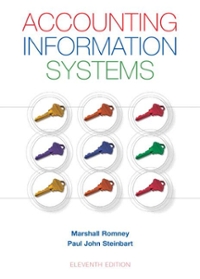Question
a) The Devon Motor Company produces motorcycles. During April, the company purchased 8,000 batteries at a cost of Tk.10 per battery. Devon withdrew 7,600 batteries
a) The Devon Motor Company produces motorcycles. During April, the company purchased 8,000 batteries at a cost of Tk.10 per battery. Devon withdrew 7,600 batteries from the storeroom during the month. Of these, 100 were used to replace batteries in motorcycles used by the company's traveling sales staff. The remaining 7,500 batteries withdrawn from the storeroom were placed in motorcycles being produced by the company. Of the motorcycles in production during April, 90% were completed and transferred from work in process to finished goods. Of the motorcycles completed during the month, 30% were unsold at April 30.
There were no inventories of any type on April 1.
Required:
1. Determine the cost of batteries that would appear in each of the following accounts at April 30:
a. Raw Materials.
b. Work in Process.
c. Finished Goods.
d. Cost of Goods Sold.
e. Selling Expense.
2. Specify whether each of the above accounts would appear on the balance sheet or on the income statement at April 30.
b)(Business Ethics) Consumers and attorney generals in more than 40 states accused a prominent nationwide chain of auto repair shops of misleading customers and selling them unnecessary parts and services, from brake jobs to front-end alignments. Lynn Sharpe Paine reported the situation as follows in "Managing for Organizational Integrity," Harvard Business Review, Volume 72 Issue 3:
In the face of declining revenues, shrinking market share, and an increasingly competitive market . . . management attempted to spur performance of its auto centers. . . . The automotive service advisers were given product-specific sales quotassell so many springs, shock absorbers, alignments, or brake jobs per shiftand paid a commission based on sales. . . . [F]ailure to meet quotas could lead to a transfer or a reduction in work hours. Some employees spoke of the "pressure, pressure, pressure" to bring in sales.
This pressure-cooker atmosphere created conditions under which employees felt that the only way to satisfy top management was by selling products and services to customers that they didn't really need.
Suppose all automotive repair businesses routinely followed the practice of attempting to sell customers unnecessary parts and services.
Required:
1.How would this behavior affect customers? How might customers attempt to protect themselves against this behavior?
2.How would this behavior probably affect profits and employment in the automotive service industry?
Step by Step Solution
There are 3 Steps involved in it
Step: 1

Get Instant Access to Expert-Tailored Solutions
See step-by-step solutions with expert insights and AI powered tools for academic success
Step: 2

Step: 3

Ace Your Homework with AI
Get the answers you need in no time with our AI-driven, step-by-step assistance
Get Started


